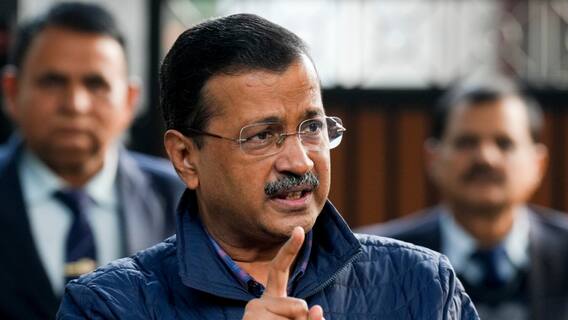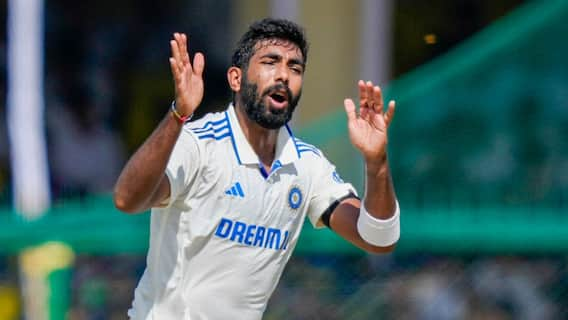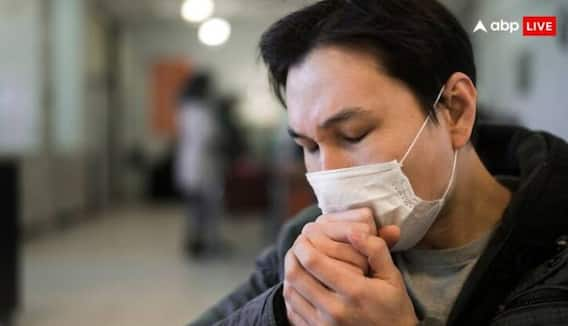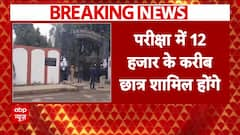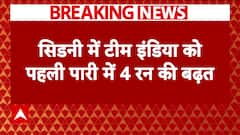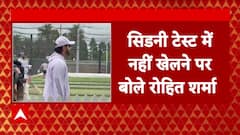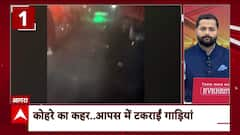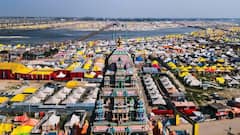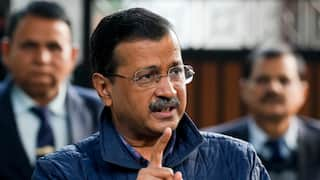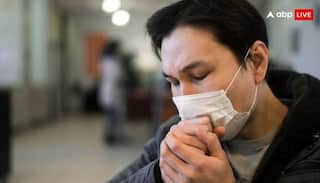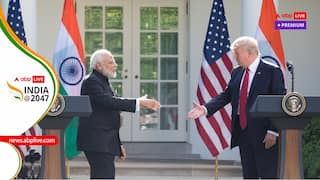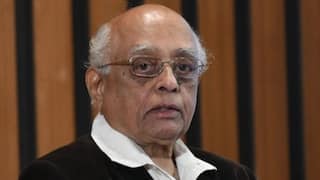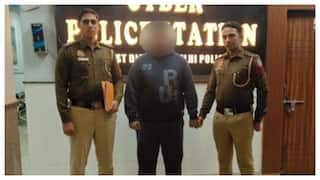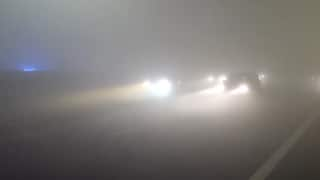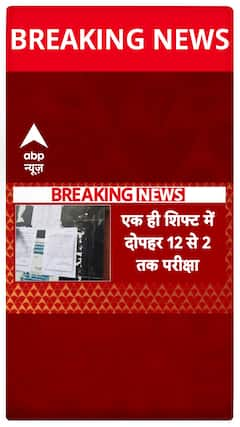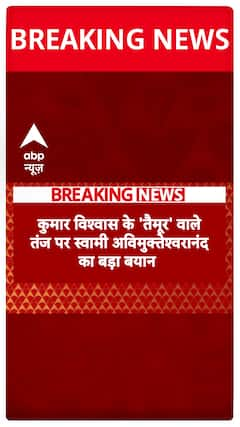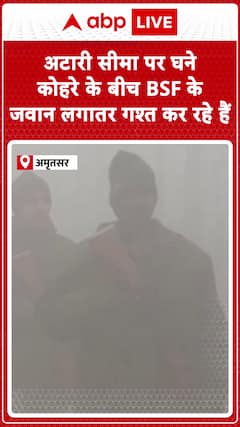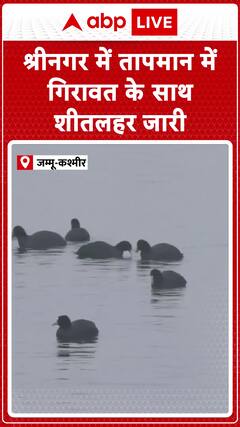Breaking News HIGHLIGHTS: Night Curfew Lifted Across Jammu-Kashmir, Offline Classes To Resume From Monday
Breaking News HIGHLIGHTS: Follow this page for all the updates and Breaking News from India around the world.
LIVE

Background
No more weeklong quarantine for people arriving from abroad, new Covid guidelines come into force on Monday
New Delhi, Feb 13 (PTI) International passengers arriving at the IGI Airport here will not require to undergo mandatory weeklong quarantine as new COVID-19 guidelines of the Ministry of Health and Family Welfare come into force from Monday.
The Delhi Disaster Management Authority (DDMA) has directed health officials and district magistrates to ensure the Centre's revised COVID-19 guidelines for international arrivals are followed at the IGI Airport from Monday.
The Ministry of Health & Family Welfare on February 10 released detailed guidelines for international arrivals at airports and seaports in the country, doing away with the quarantine provision.
According to the guidelines, all the passengers will show self-declaration form on arrival at the airport. The passengers found to be symptomatic during screening will be immediately isolated and taken to medical facility under health protocol.
If tested positive, their contacts will be identified and managed as per laid down protocol.
The protocol post arrival mandates that two per cent of the total passengers in a flight will undergo random testing at the airport. Such travellers in each flight will be identified by the airlines concerned, preferably from different countries.
They will submit the samples and will be allowed to leave the airport. If such travellers test positive, their samples would be sent for genomic sequencing.
All travellers will self-monitor their health for next 14 days of arrival. Earlier, such travellers were required to undergo weeklong home quarantine.
The guidelines state if travellers under self-health monitoring develop signs and symptoms suggestive of COVID-19, they will immediately self-isolate and report to their nearest health facility or call national helpline number (1075)/ state helpline number.
This Standard Operating Procedure will be valid from midnight of February 14 till further orders.
Based on the risk assessment, this document shall be reviewed from time to time.
The guidelines further stipulate all travellers should submit complete and factual information in self-declaration form on the online air portal Suvidha before the scheduled travel, including last 14 days' travel details.
They will also upload a negative COVID-19 RT-PCR report not earlier than 72 hrs prior to undertaking the travel or certificate of completing full primary vaccination schedule.
J&K Govt issues new COVID guidelines
J&K Govt issues new COVID guidelines; allows universities, colleges, ITIs to start offline classes from Feb 14
— ANI (@ANI) February 13, 2022
Classes from 9 to 12 (Summer Zone) can start offline. Classes for junior classes (Summer Zone) can start from Feb 21
Classes in winter zone can start after Feb 28 pic.twitter.com/MrUvHigimc
International Passengers Arriving In Rajasthan Need To Undergo Mandatory RT-PCR Test, Announces State Govt
COVID-19: In a fresh order, Rajasthan Govt says international passengers will need to undergo mandatory RT-PCR test on arrival

Rajasthan: All private and Govt schools to reopen in urban areas for classes up to std 5
All private and Govt schools to reopen in urban areas of Rajasthan for classes up to standard 5 from Feb 16, ANI reported the State Govt as announcing.
Night curfew lifted across J-K; offline classes to resume from Monday
Jammu, Feb 13 (PTI) The Jammu and Kashmir State Executive Committee (SEC) on Sunday announced the lifting of the night curfew after almost six months and opening of educational institutions in a phased manner beginning Monday amid a decline in COVID-19 cases.
The SEC also attendance at indoor gatherings to 50 per cent of the authorized capacity against the previous 25 per cent, while cinema halls, theatres, restaurants, clubs, gymnasiums and swimming pools were permitted to function at 25 per cent of the authorized capacity with due precautions.
Announcing the guidelines on Sunday after a fresh review of the COVID-19 situation, the SEC, which met under the chairmanship of Chief Secretary A K Mehta, said all universities, colleges, polytechnics and ITIs shall commence routine offline classes teaching from February 14.
All the students between 15-17 age group coming to attend regular offline classes must carry a vaccination certificate with them. The heads of the institutions must ensure that guidelines related to social distancing and Covid-appropriate Behaviour are strictly followed, including regular screening at the entrance to the institution.
They shall also screen any symptomatic student and ensure their testing to contain any possibility of spread of the virus in their institutions, Mehta said in a five-page order issued here.
The order said all Summer Zone Schools in Jammu and Kashmir will open in a phased manner. Classes from 9th to 12th can commence routine offline teaching from February 14. All the students of 15-17 age group coming to attend regular offline classes must carry a vaccination certificate with them, the order stated.
It said the head of the Institutions must ensure vaccination of every student above 15 years of age in their respective Institutions.
The SEC said the offline mode of teaching for remaining junior classes in Summer Zone schools shall begin from February 21, a step which will allow students to attend their schools after a gap of over two years.
In Winter Zone schools, the offline teaching for all classes will commence after February 28. These schools in Kashmir and parts of Jammu region are currently closed owing to the winter vacation.
Coaching centres for civil services/engineering/NEET are permitted to adopt offline mode of teaching subject to condition that both faculty members as well as students are fully vaccinated and the head of the centre ensures due precautions such as CAB and adherence to SOP, the order stated.
The order made no mention of the night curfew, which was in force across Jammu and Kashmir over the past six months, indicating that it had been lifted, days after the administration ended the weekend restrictions.
Trending News
Top Headlines







